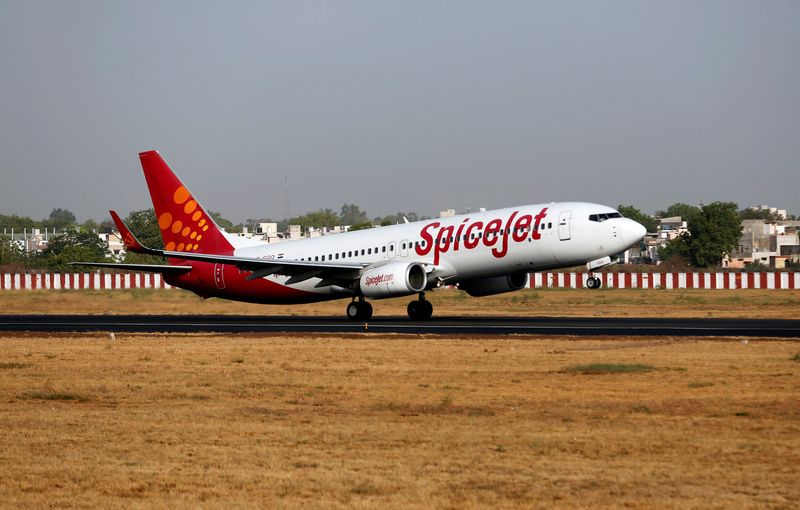NEW DELHI (Reuters) -India's SpiceJet Ltd said on Wednesday its Chief Financial Officer Sanjeev Taneja had resigned, as the low-cost carrier posted a wider quarterly loss and faces increased scrutiny over mid-air incidents.
The cash-strapped airline has struggled to make timely payments to vendors and lessors, prompting some to deregister planes. Meanwhile, some banks have internally categorised loans to SpiceJet as "high risk" though the airline has not defaulted.
It has also been pulled up by the country's aviation regulator over "poor internal safety oversight and inadequate maintenance actions", with the watchdog slashing its approved fleet to 50% this summer.
But the airline's managing director, Ajay Singh, said despite "the complex operating environment and highest ever input costs", SpiceJet had been able to sustain its operations and would soon engage investment banks to raise up to $200 million.
He said in the company's results statement that SpiceJet would add more Boeing (NYSE:BA) 737-8 MAX planes to take advantage of strong air travel demand. It had already agreed to buy some planes from Boeing and planned sale and lease-back deals with lessors.
"As we move ahead we are encouraged with the strong travel demand and our focus for the next year would be to induct more fuel efficient Boeing 737-8 MAX aircraft and concentrate on our regional and international routes," Singh said.
SpiceJet reported a loss of 7.84 billion rupees ($98.6 million) for the quarter ended June 30, compared with a loss of 7.31 billion rupees a year earlier, mainly due to high fuel costs and unfavourable foreign currency rates. Revenue more than doubled to 25.57 billion rupees.

Even so, SpiceJet said that in recent months it had cleared its principal dues with the state-run airport operator and entered into a settlement agreement with aircraft lessor Goshawk Aviation Ltd over three Boeing aircraft.
($1 = 79.5080 Indian rupees)